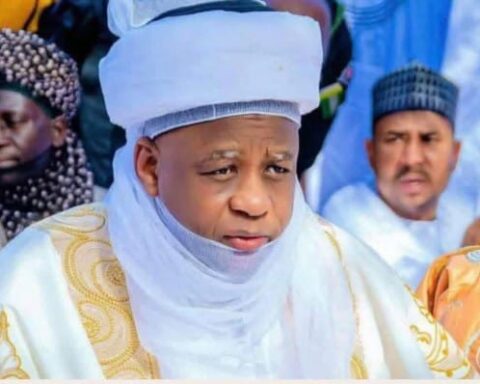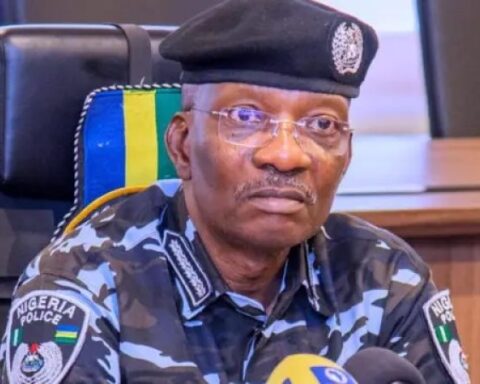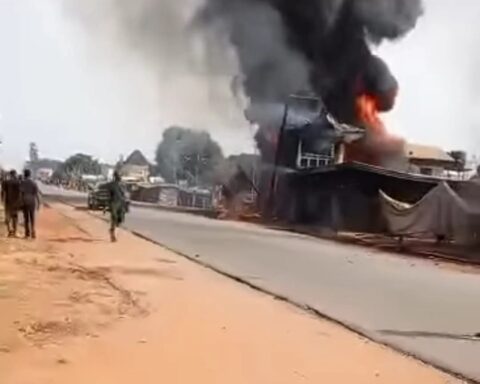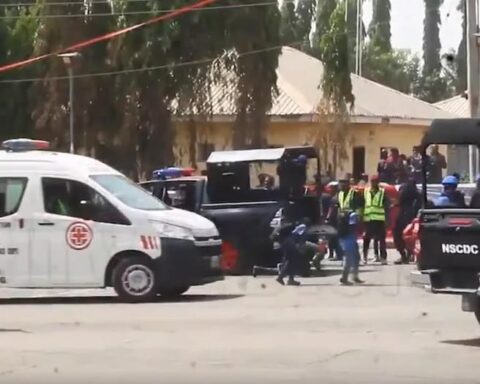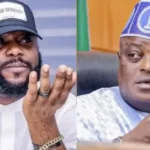The Federal Government of Nigeria today officially unveiled the long-awaited Kanu Digital Park in Kano State, a major technology hub intended to accelerate digital innovation in Northern Nigeria. The ceremony, attended by high-ranking government officials, tech leaders, and international partners, was both a celebration of progress and a solemn reflection on the challenges faced during its development.
Kanu Digital Park was originally scheduled for commissioning in late 2024. However, the facility became one of the unexpected flashpoints during the nationwide youth-led protests in October 2024, which were triggered by rising unemployment, inflation, and perceived government inaction on key reforms.
What began as peaceful demonstrations escalated into civil unrest in several cities. In Kano, a small faction of protesters stormed the under-construction digital park, damaging critical infrastructure, including the main server hub, solar installations, and smart classroom components. Millions of naira in equipment were destroyed, and the project’s completion was delayed by over seven months.
Security agencies were widely criticized for their slow response to the incident. The government, while condemning the vandalism, acknowledged the legitimacy of the broader protest demands and pledged renewed investment in youth-focused infrastructure.
During today’s unveiling, Minister of Communications, Innovation and Digital Economy, Dr. Halima Sanni, called the park a “symbol of national resilience and a turning point for Kano and the North at large.”
This park was born from a vision to empower our youth through technology. Though it was tested by unrest, we did not abandon that vision. Instead, we listened, re-evaluated, and rebuilt—stronger and more inclusive,” Dr. Sanni said in her address.
The revamped facility now features expanded amenities, including:
A 5G innovation lab for startups
An AI training centre for students and professionals
Co-working spaces with subsidized rates for early-stage entrepreneurs
Satellite-linked classrooms for remote learning across rural Northern Nigeria
The government also introduced a Post-Protest Recovery Fund, a ₦5 billion initiative aimed at supporting startups affected by the 2024 unrest, with Kanu Digital Park serving as its operational headquarters.
While the unveiling marks a positive step toward recovery and growth, not everyone is fully convinced. Some local tech activists and civil society leaders expressed skepticism about long-term government commitment and transparency.
>We welcome the opening, but there must be real accountability. The 2024 protests weren’t just about infrastructure—they were about inequality and exclusion,” said Safiya Umar, co-founder of the Northern Digital Rights Initiative.
Others, however, saw the park’s completion as a rare instance of public perseverance. “We lost a lot during the protests, but this is something to be proud of,” said Musa Garba, a Kano-based software engineer who plans to move his freelance team into the park next month.
With the digital economy expected to contribute over 18% to Nigeria’s GDP by 2030, facilities like Kanu Digital Park are viewed as crucial stepping stones. The government has hinted at plans to replicate the model in other northern states, including Sokoto and Borno, with a focus on youth employment and tech-based education.
As dignitaries toured the new facility today, the message was clear: while scars from the 2024 protests remain, so does the determination to build forward—together.
[7/3, 2:49 PM] Mr Chuddy Oduenyi: ADC COALITION WILL PUT NIGERIANS FIRST, SAYS OBI
In a bold political move that could reshape Nigeria’s power dynamics ahead of the 2027 general elections, former presidential candidate Peter Obi declared on Wednesday that the newly formed ADC Coalition is “committed to putting Nigerians first” above personal or party interests.
The coalition — officially named the Alliance for Democratic Change (ADC) — brings together key opposition figures, civil society groups, technocrats, and youth-led movements. It was unveiled at a packed press conference in Abuja, marking what many observers see as the beginning of a serious challenge to the dominant political blocs.
Obi, speaking as one of the coalition’s founding leaders, said the ADC is not just a political alliance but a people-powered movement.
Nigerians are tired — tired of insecurity, tired of joblessness, tired of promises without action,” Obi said. “This coalition is not about me or any one individual. It is about Nigeria. We are coming together to put the people first, to build a nation that works for everyone — not just for the privileged few.”
The former Anambra governor, widely respected for his fiscal prudence and reform-minded politics, emphasized that the coalition would focus on economic recovery, education reform, power sector revamp, and restoring trust in public institutions.
Obi also made clear that the ADC would prioritize merit, character, and competence in selecting candidates for future elections, a nod to criticisms of the entrenched political elite.
The ADC includes a diverse mix of political actors: defectors from the major parties, youth activists from the End SARS generation, former technocrats from the private sector, and even some retired military officers advocating national unity and security sector reform.
Among the prominent figures at the launch were:
Senator Ibrahim Dankwambo, former Gombe State governor
Dr. Amina Bala, a former World Bank economist and education advocate
Chukwuemeka Nwajiuba, former Minister of State for Education
Representatives from the Coalition of Nigerian Youth Voters and Women for Good Governance
The ruling All Progressives Congress (APC) dismissed the coalition as a “recycled gathering of frustrated politicians,” with spokesperson Abdul Malami stating, “The Nigerian people have already made their choice in 2023, and they know who is delivering results.”
>If the ADC can maintain unity, a clear policy platform, and mobilize the growing base of disillusioned young voters, they could be a formidable force in 2027,” said Dr. Ifeoma Ogunleye, a political science lecturer at the University of Lagos.
Civil society groups also welcomed the development.
>This is the most promising attempt in recent years to break the two-party chokehold on our democracy,” said Yemi Aderemi of the Centre for Democratic Integrity. “But the real test will be whether they can remain focused, avoid internal sabotage, and deliver on grassroots engagement.”
The ADC is expected to hold a national convention in October, where it will elect party officers and unveil a detailed policy blueprint. Peter Obi has not confirmed whether he will run for president under the new coalition but said “all options are on the table — as long as the people remain the priority.”
As the political landscape begins to shift, many Nigerians are watching closely, hopeful that this coalition might offer more than just another election cycle — but a genuine reset.
Follow us on all social media platforms @dailyquery for news and analyses around the globe.

